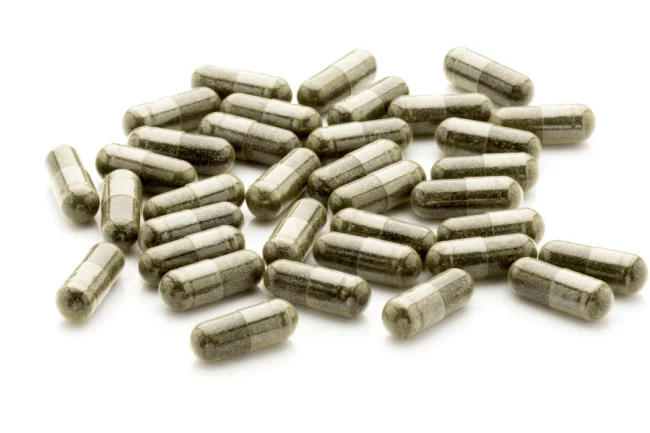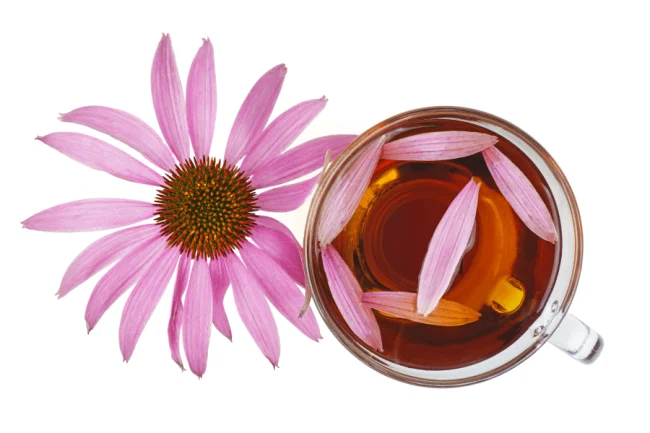When the sniffles start and a sore throat creeps in, many people turn to echinacea as a natural remedy.
But does echinacea really help combat colds, or is it just another wellness myth? Let’s discover the science, history, and expert opinions to uncover the truth about this popular herbal supplement.
Types of Echinacea Supplements Available
Echinacea supplements come in various forms, including capsules, tablets, tinctures, and teas.
The most commonly used species are Echinacea purpurea, Echinacea angustifolia, and Echinacea pallida. Each form and species might have slightly different effects, making it crucial to choose the right type for your needs.
Evidence for Efficacy
Research Studies on Echinacea and Cold Prevention
Several studies have examined echinacea’s effectiveness in preventing and treating colds. While some research suggests that echinacea can reduce the duration and severity of cold symptoms, other studies have found little to no benefit.
Positive Findings: A 2015 meta-analysis published in the journal Cochrane Database of Systematic Reviews found that echinacea might slightly reduce the risk of developing a cold and shorten the duration of a cold by about half a day.
Mixed Results: A 2010 study published in The Annals of Internal Medicine concluded that echinacea had a minimal effect on the severity and duration of cold symptoms, with results varying among individuals.
Comparative Analysis Against Placebo Studies
Placebo-controlled studies often reveal the psychological impact of believing in a treatment’s efficacy. Some trials have shown that people taking echinacea report better outcomes, possibly due to the placebo effect. However, distinguishing between genuine pharmacological effects and placebo responses remains challenging.
Expert Opinions on Echinacea Usage
Many healthcare professionals hold varied opinions on echinacea. Some advocate for its use as part of a holistic approach to cold prevention, while others remain skeptical due to inconsistent scientific evidence. It’s essential to consult a healthcare provider before starting any new supplement regimen.
Potential Side Effects and Considerations
Echinacea is generally considered safe for short-term use. However, some people may experience side effects, including:
- Gastrointestinal upset
- Allergic reactions (especially in those allergic to plants in the daisy family)
- Rash or increased asthma symptoms
Recommended Dosages by Health Professionals
Dosage recommendations for echinacea vary. Typically, for cold prevention, a daily dose of 300-500 mg of standardized extract is suggested. For treating cold symptoms, higher doses (up to 1,000 mg) may be taken several times daily for a short period. Always follow the dosage instructions on the supplement label or as advised by a healthcare provider.
Precautions for Specific Population Groups
Certain groups should exercise caution or avoid echinacea altogether:
- Pregnant or breastfeeding women: Consult a healthcare provider before use.
- Individuals with autoimmune disorders: Echinacea may stimulate the immune system, potentially exacerbating autoimmune conditions.
- People with allergies: Those allergic to ragweed, chrysanthemums, marigolds, or daisies should avoid echinacea due to the risk of allergic reactions.
Incorporating into Your Cold-Fighting Regimen
Best Practices for Taking Echinacea Supplements
To maximize the potential benefits of echinacea:
- Start Early: Begin taking echinacea at the first sign of cold symptoms.
- Follow Dosage Guidelines: Stick to recommended dosages to avoid adverse effects.
- Choose Quality Products: Look for high-quality supplements from reputable brands to ensure purity and potency.
Combining Echinacea with Other Cold Remedies
Echinacea can be part of a broader cold prevention and treatment strategy.
Combining it with other natural remedies, such as vitamin C, zinc, and elderberry, may enhance its effectiveness. Always consult with a healthcare provider before combining supplements.
Tips for Enhancing Immune System Support
Beyond supplements, maintaining a healthy immune system involves:
- Balanced Diet: Eat a variety of fruits, vegetables, lean proteins, and whole grains.
- Regular Exercise: Engage in moderate physical activity most days of the week.
- Adequate Sleep: Aim for 7-9 hours of quality sleep each night.
- Stress Management: Practice stress-reducing techniques such as meditation, yoga, or deep breathing exercises.
Exploring Additional Cold Prevention Strategies
To bolster your defenses against colds, consider these alternative strategies:
- Probiotics: Support gut health, which is linked to immune function.
- Hydration: Drink plenty of fluids to keep mucous membranes moist and resistant to infection.
- Hand Hygiene: Wash hands frequently with soap and water to prevent the spread of viruses.
Conclusion
Echinacea holds promise as a natural remedy for colds, but its efficacy is not universally guaranteed.
By understanding the available evidence and consulting with healthcare professionals, you can make an informed decision about incorporating echinacea into your cold-fighting arsenal.
Remember, a holistic approach that includes a healthy lifestyle, proper hygiene, and evidence-based remedies is the best way to keep colds at bay.
FAQs
Is it worth taking echinacea when you have a cold?
Echinacea may help reduce the duration and severity of cold symptoms for some people. It’s best to start taking it at the first sign of a cold and follow the recommended dosage.
Does echinacea work in NHS?
The NHS does not officially endorse echinacea for cold prevention or treatment, as the evidence is mixed. However, some individuals may find it beneficial as part of a holistic approach.
What is better for a cold, echinacea or elderberry?
Both echinacea and elderberry have shown potential benefits in reducing cold symptoms, but their effectiveness can vary. Some studies suggest elderberry may be more effective, particularly in reducing the severity and duration of flu symptoms.
Can echinacea overstimulate the immune system?
Echinacea can stimulate the immune system, which may not be suitable for individuals with autoimmune disorders. It’s essential to consult a healthcare provider before using echinacea if you have any underlying health conditions.







